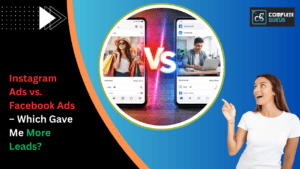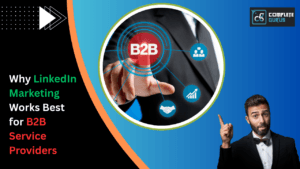When it comes to driving traffic and generating sales for your eCommerce business, both SEO (Search Engine Optimization) and Google Ads (pay-per-click advertising) are powerful tools. However, deciding which one is better for your business depends on various factors, including your goals, budget, and the time you can invest. Here’s a breakdown of both strategies to help you make an informed decision.
Understanding SEO
SEO Basics: SEO involves optimizing your website to rank higher in organic search results. It focuses on improving your site’s visibility for relevant keywords and phrases, making it easier for potential customers to find you.
Benefits of SEO:
- Cost-Effective: While SEO requires an initial investment in terms of time and resources, it doesn’t involve paying for each click. Once your site ranks well, you can attract free, organic traffic.
- Long-Term Results: SEO efforts can provide lasting results. Once you achieve high rankings, maintaining them typically requires less effort compared to the initial optimization.
- Credibility and Trust: High organic rankings often lead to greater credibility and trust among users. People tend to trust Google’s organic results more than paid ads.
Challenges of SEO:
- Time-Consuming: SEO is a long-term strategy and can take several months to show significant results. It requires consistent effort and patience.
- Algorithm Changes: Search engines frequently update their algorithms, which can affect your rankings. Staying updated with these changes is crucial.
Understanding Google Ads
Google Ads Basics: Google Ads is a form of paid advertising where you create ads that appear in search engine results pages (SERPs) for specific keywords. You pay a fee each time someone clicks on your ad (PPC).
Benefits of Google Ads:
- Immediate Results: Google Ads can generate traffic and sales quickly. Once your campaign is live, your ads can appear in search results almost immediately.
- Targeted Advertising: Google Ads allows you to target specific demographics, locations, devices, and even the time of day your ads appear. This precision targeting can lead to higher conversion rates.
- Scalability: You can easily scale your campaigns up or down based on your budget and goals. This flexibility is beneficial for managing your marketing spend.
Challenges of Google Ads:
- Cost: Paying for each click can become expensive, especially in highly competitive markets. You need to manage your budget carefully to ensure a good return on investment (ROI).
- Temporary Traffic: Once you stop paying for ads, the traffic stops. Unlike SEO, the results are not long-lasting without ongoing investment.
Comparing SEO and Google Ads
Cost:
- SEO: Initial costs might be high due to content creation, website optimization, and possibly hiring an SEO expert. However, the ongoing costs are relatively low.
- Google Ads: You pay for each click, so ongoing costs can be high, especially for competitive keywords. It’s easier to control your spending, but stopping the ads means stopping the traffic.
Speed:
- SEO: Takes time to build and show results. It’s a marathon, not a sprint.
- Google Ads: Provides immediate visibility and traffic. Ideal for quick results and time-sensitive campaigns.
Longevity:
- SEO: Offers long-term benefits. Once your site ranks well, it can sustain traffic with minimal ongoing effort.
- Google Ads: Provides short-term results. Traffic ceases when you stop paying for ads.
Trust and Credibility:
- SEO: Organic search results are often perceived as more trustworthy.
- Google Ads: Ads are clearly marked as paid, which might affect trust for some users.
Control:
- SEO: Less control over where you rank. Dependent on search engine algorithms and updates.
- Google Ads: Complete control over ad placement, targeting, and budget.
Which is Better for Your eCommerce Business?
The choice between SEO and Google Ads depends on your specific needs and circumstances:
- For Immediate Results: If you need quick traffic and immediate sales, Google Ads is the way to go. It’s particularly useful for new product launches, seasonal promotions, and time-sensitive offers.
- For Long-Term Growth: If you’re looking to build a sustainable online presence and generate organic traffic over time, investing in SEO is a smart move. It’s cost-effective in the long run and builds credibility.
- For a Balanced Approach: Many successful eCommerce businesses use a combination of both. Start with Google Ads to drive immediate traffic and sales while working on your SEO strategy to build long-term organic traffic. This balanced approach allows you to benefit from the strengths of both strategies.
Suggested reading : SEO Vs. Google Ads: Which Is Better For Your HVAC Business?
Conclusion
Both SEO and Google Ads offer unique advantages for eCommerce businesses. Google Ads provides immediate visibility and traffic, making it ideal for quick results and targeted campaigns. SEO, on the other hand, is a long-term strategy that builds organic traffic and credibility over time. By understanding the strengths and challenges of each, you can create a digital marketing strategy that leverages both to maximize your eCommerce success.

I am Ashutosh – a seasoned digital marketer, bringing digital transformation to businesses, complementing businesses’ growth via generating qualified leads, drive site inbound traffic via organic and inorganic approach, & build their brands through useful, well-designed marketing strategies and Marketing Automation implementation via Chat GPT, HubSpot & Zoho.







